Recent study indicating that virus is spreading fast among male homosexual population has left experts divided. While health specialists say targetted messaging helps with early intervention, activists fear it may cause further marginalisation
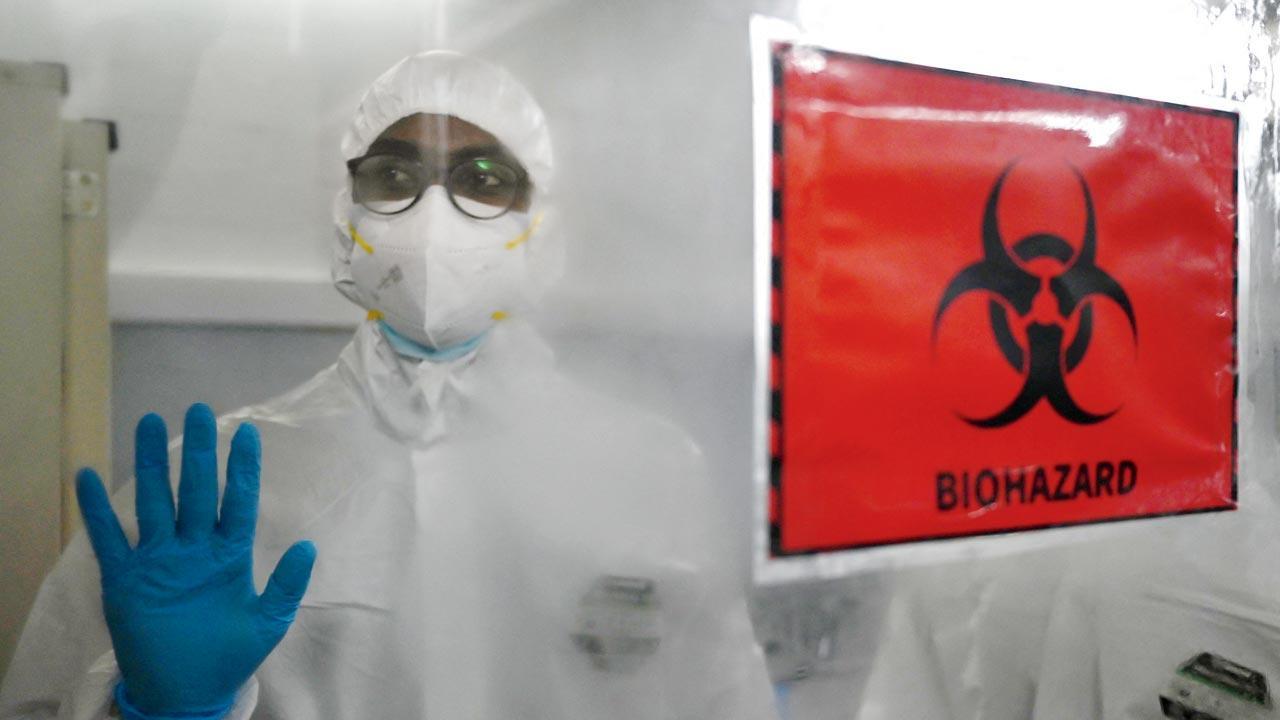
Technicians wearing PPE suits stand behind a biohazard sign inside a molecular laboratory facility set up to test for the monkeypox disease during its inauguration at the King Institute in Chennai this month. Pic/Getty Images
Clarifications are in order. After fresh evidence revealed that monkeypox, recently declared as a global health emergency by the World Health Organisation (WHO), was largely prevalent among the gay and bisexual population, there has been a growing fear within the queer community that they could face a repeat of the discrimination they experienced during the HIV/AIDS crisis back in the 1980s.
One of the more alarming studies appeared in the latest issue of The New England Journal of Medicine, which revealed that at least 98 per cent of the 528 monkeypox infection cases analysed included gay or bisexual men. The paper authored by a group of more than 30 clinicians, who contributed to an international case series to describe the presentation, clinical course, and outcomes of polymerase-chain-reactions, indicated that a sexual relationship between men could be a possible reason behind the spread.
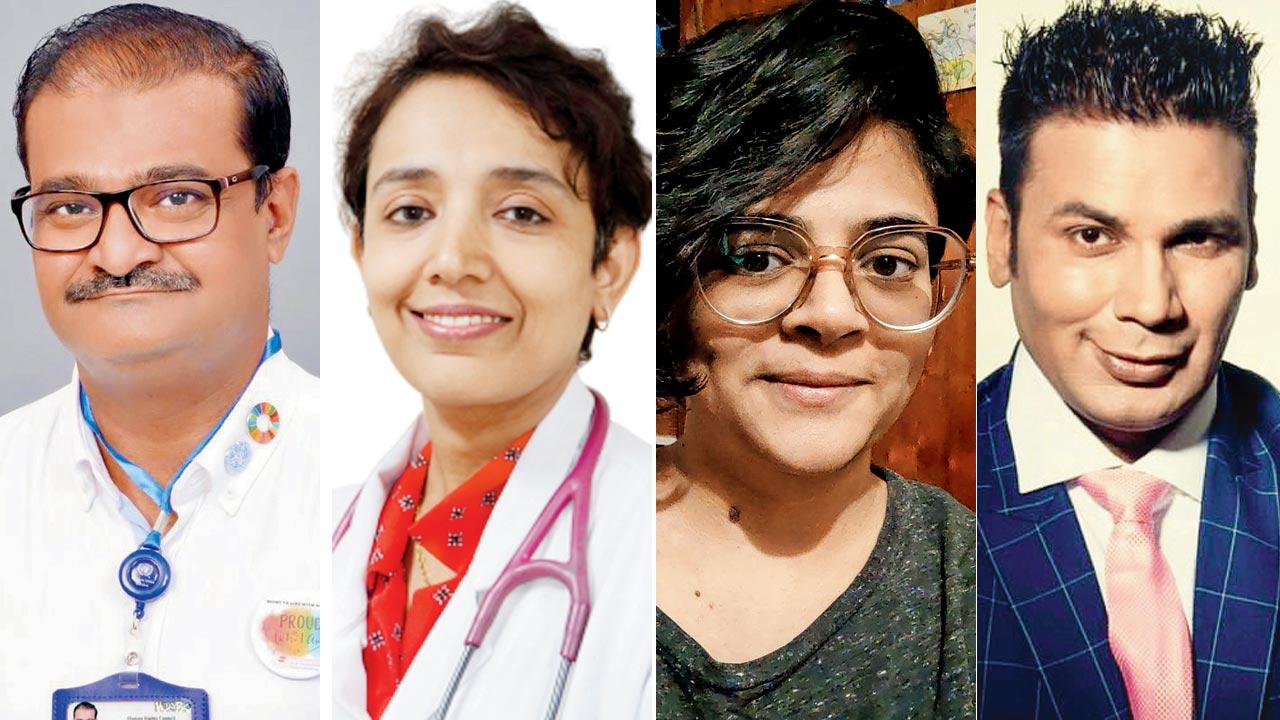
Arif Jafar, Dr Anita Mathew, Prarthana Sham and Yashwinder Singh
Speaking with mid-day, Professor Chloe Orkin, director of the London-based Sexual Health and HIV All East Research (SHARE) Collaborative at Queen Mary University of London, that had reached out to peers in affected countries through informal clinical networks and formed a global collaborative group (SHARE-net) for the research, sets the record straight: “Monkeypox is a human disease and not a gay disease, so anyone can get monkeypox.” “The virus was introduced into sexual networks of men who have sex with men and has spread rapidly due to international community events like Pride parades and festivals; these are places where people socialise and can meet and hook up. The opening up of global travel again has led to the virus spreading from country to country in men who have sex with men,” she says.
Does this mean that people with heterosexual connections are safer from the virus’ impact? Orkin admits that it “is currently spreading in the gay community,” but clarifies, that “it’s likely to spread into the heterosexual community and there are already cases in women in the UK [14 of around 2,000 cases], plus two paediatric cases in the US that I am aware of. If it enters dense heterosexual sexual networks [commercial sex workers or heterosexuals in open relationships it is likely to spread similarly].”
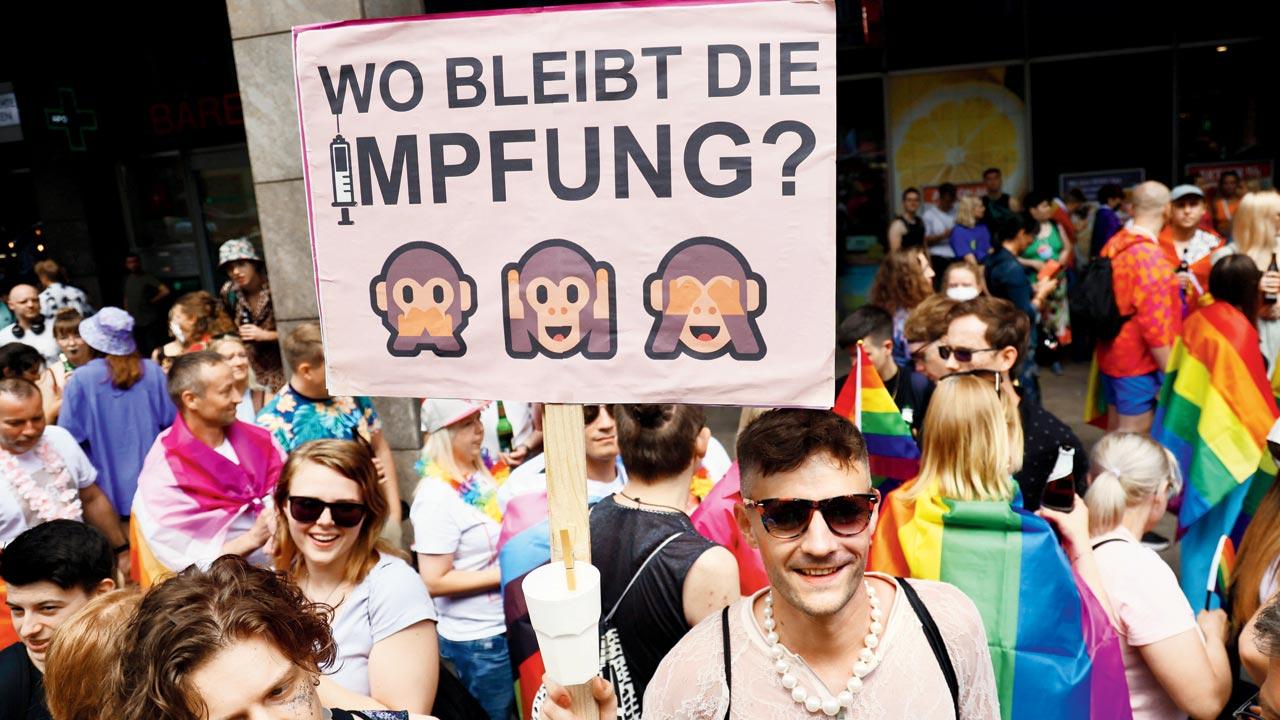
A man holds a banner reading ‘Where is the vaccination?’ during Christopher Street Day demonstration in Berlin, an annual European LGBTQiA+ celebration
Globally, however, people have already hit the panic button—the narrative has turned on its head, putting the LGBTQiA+ community in the spot.
Earlier in the week, WHO recommended that gay and bisexual men limit their number of sexual partners to help reduce transmission of the rapidly spreading virus. As of July 27, over 18,000 monkeypox cases were reported across 78 countries (70 per cent of the cases were from the European region and 25 per cent from the region of the Americas). Meanwhile, Dr Anthony Fauci, chief medical adviser to US President Joe Biden, also stated that men who have sex with men (MSM) should be among those prioritised for the monkeypox vaccine in the United States.
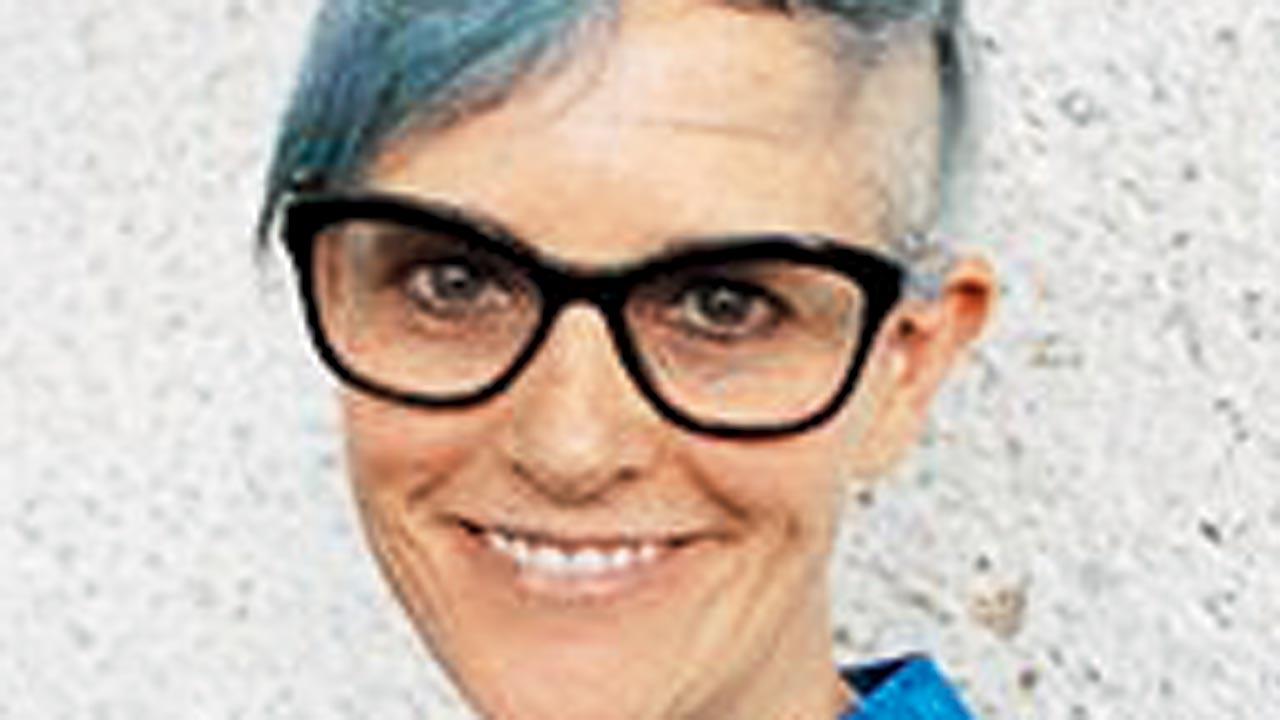
Chloe Orkin
On Friday, monkeypox was declared an imminent threat to public health in New York, while San Francisco declared a state of health emergency.
New York City-based Benjamin Ryan, independent science journalist, covering monkeypox for NBC News, told mid-day, that “the evidence backing the perception that monkeypox is transmitting among men who have sex with men is overwhelming”. “All available data supports this, as do data from the UK indicating a vast disparity in the monkeypox test-positivity rate between men, women and children... the transmission patterns may change... But so far, nearly three months into this outbreak, the transmission patterns have remained quite consistent.”
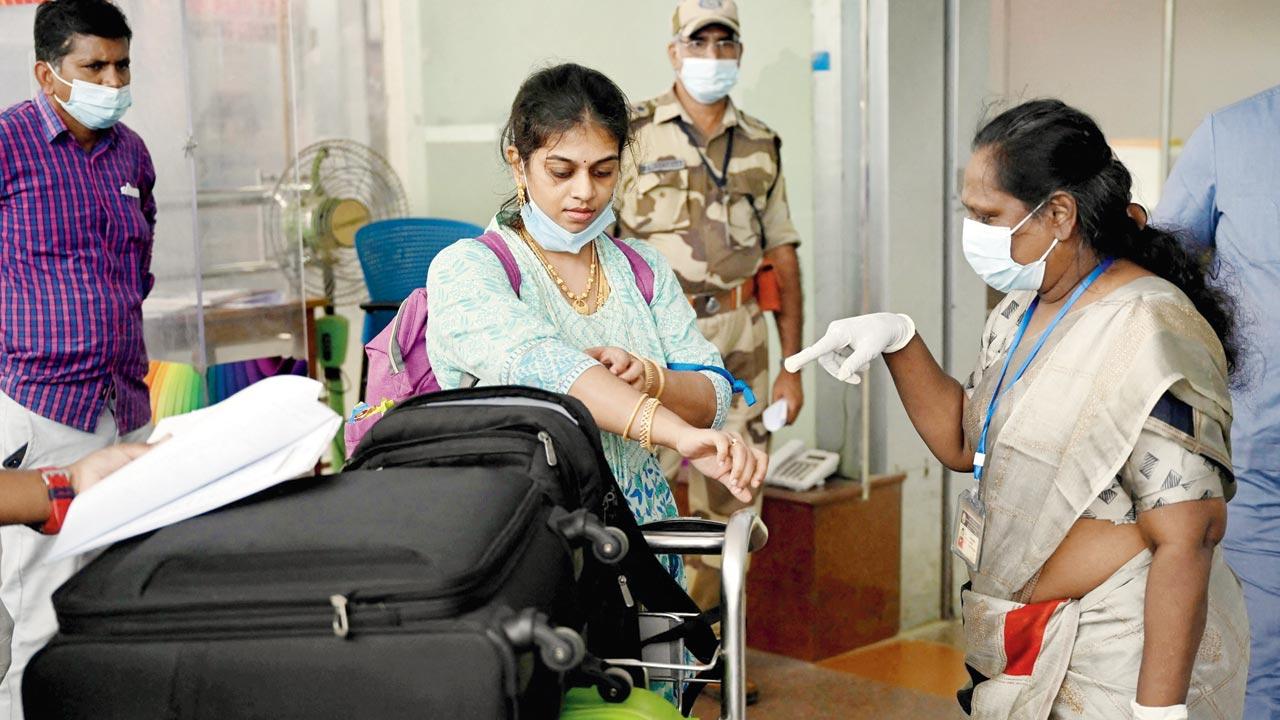
Health workers screen the limbs of passengers arriving on international flights for monkeypox symptoms at Anna International Airport terminal in Chennai last month. Tamil Nadu amped up surveillance after the first case was reported in Kerala early July
The manner in which the virus is spreading has compelled many to draw comparisons with the HIV/AIDS epidemic, a sexually transmitted disease which in its early years, was said to be largely prevalent among the gay population. The ripples of the widespread stigmatisation and acts of homophobia are being felt even today.
Dr Anita Mathew, infectious disease specialist, Fortis Hospital, Mulund, says that unlike HIV/AIDS, sexual contact is not the only means of transmission of the monkeypox virus. Orkin explains that “monkeypox is spread through skin-to-skin contact with infected skin lesions and/or with bed sheets and towels where it can persist for weeks”. “It can also spread through large droplets [sneezing and coughing]. It is a disease that affects humans, so anyone [irrespective of sexual orientation] could theoretically get monkeypox,” says Orkin.
Mathew adds that while HIV/AIDS is severe, lifelong and causes a serious immunocompromised state, monkeypox—first reported in 1970 in the Democratic Republic of the Congo—“is a self-limited disease, which will only cause a reduced functionality of life for the few weeks when you have the illness”. While the case fatality for monkeypox, according to WHO, has been 3 to 6 per cent, so far only five deaths have been reported across the world. India has reported four cases so far. According to WHO, the clinical presentation of monkeypox resembles that of smallpox, a related orthopoxvirus infection which was declared eradicated worldwide in 1980. Monkeypox is less contagious than smallpox and causes less severe illness. It typically presents clinically with fever, body rash and swollen lymph nodes and may lead to a range of medical complications.
Ryan admits that stigmatisation of gay and bisexual men who have sex with men (GBMSM) is going to be a concern. “...Especially if people exaggerate how readily this virus transmits. The early data and studies suggest that the virus may largely be transmitting sexually and very rarely through less intimate forms of contact. If people have an exaggerated sense of the risk of monkeypox transmission via household contact or nonsexual close contact, they may discriminate against gay men, not wanting them around their children, for example,” he says.
According to Orkin, one of the difficulties is that the GBMSM is a marginalised community that has already been scarred by being stigmatised during the HIV epidemic. “Nobody wants to repeat that. On the other hand, public health messages are most effective when targetted at the people who are at risk of the condition. Given that this pandemic is affecting almost exclusively GBMSM, directing messages relevant to this community and working to develop interventions with this community is what is needed to help GBMSM protect their selves and engage with healthcare.”
Activists and mental health experts in India, however, feel that the worst is yet to unfold. Lucknow-based gay rights activist Arif Jafar, who is managing director of Naz Foundation International, feels that the new findings will push the marginalised community towards an impermeable wall. Jafar, who spent about 47 days in jail in Lucknow back in 2001 for his role in HIV intervention in the queer community, believes that monkeypox studies needs to dive deeper and increase the sample size to reflect the world adequately, before a particular group of people is blamed. “Such conclusions are easy to draw, but they can lead to acts of violence against the gay and bisexual community,” he feels.
Yashwinder Singh, lead for Community System Strengthening with The Humsafar Trust, says when WHO has already said that monkeypox can affect anyone and everyone, it’s important that the media report the developments carefully and responsibly. “With such a narrative, you are risking a false perception that straight, heterosexual people won’t be affected by the disease. Which is untrue. We have to see this through the lens of pure science, and not emotion.” Singh feels that the reason why there could be a higher number of monkeypox cases among GBMSM is because of the widespread prevalence of awareness programmes initiated due to HIV/AIDS. “At least in India, that’s the reason why the LGBTQiA+ population goes in for regular testing. How many straight men get tested regularly?” asks the Delhi-based activist.
“The first feelings that I experienced when I read the study was frustration,” says Prarthana Sham, a Bengaluru-based therapist, who works very closely with the queer population. “Not everyone has the ability to discern what news implies what, and it becomes frustrating because of the way the community will get treated. [With such studies] the stereotypes about what happens within the queer community only get perpetuated. There is already a moral discrimination against them... they are hypersexualised. This doesn’t help.”
98
Percentage of infection in gay or bisexual men of the 528 cases analysed in a study
14
No. of women who have been diagnosed with monkeypox of around 2,000 cases in the UK
 Subscribe today by clicking the link and stay updated with the latest news!" Click here!
Subscribe today by clicking the link and stay updated with the latest news!" Click here!








